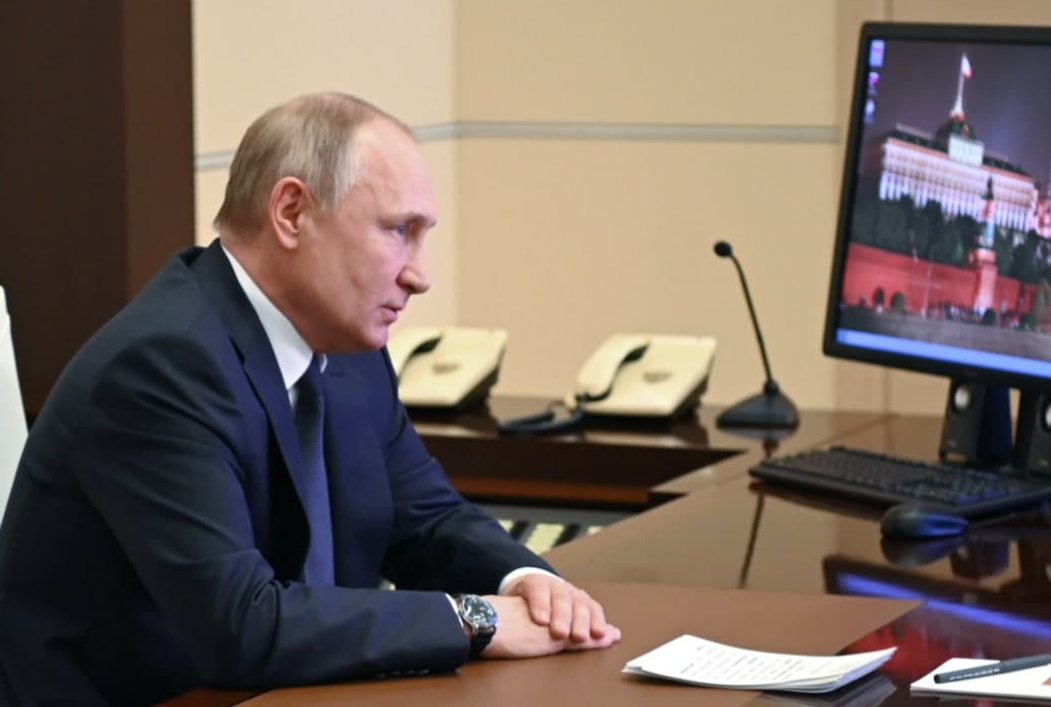Russian President Vladimir Putin has announced Moscow’s readiness for a third round of peace talks with Ukraine, proposing Istanbul as the venue. He also offered to return 3,000 bodies of Ukrainian soldiers and acknowledged the economic strain of military spending. Meanwhile, U.S. President Donald Trump expressed optimism about a resolution, citing a phone call with Putin. Ukrainian President Zelensky accused Western countries of indirectly supporting Russia by allowing key components into Russian weaponry. Despite diplomatic gestures, deadly strikes continue across Ukraine, highlighting the ongoing human toll.
President Putin Offers New Peace Talks in Istanbul Amid Ongoing Russia-Ukraine Conflict
In a significant development amid Russia’s continued missile barrage across Ukraine, Russian President Vladimir Putin has made a fresh push for diplomacy. While addressing a press conference in Minsk, Putin stated that Moscow is now prepared to hold the next round of peace negotiations with Ukraine in Istanbul. Though the date and exact arrangements for the third round of talks have not been finalized, the Russian leader emphasized that the negotiation teams from both sides are in regular contact and are currently discussing when the talks should take place.
According to Putin, the upcoming round of talks will focus on the memorandum of peace treaties proposed by both countries. He also made a humanitarian gesture, saying that Russia is prepared to hand over the bodies of another 3,000 Ukrainian soldiers. “We are ready to hold such a meeting in Istanbul,” he noted, highlighting the ongoing communication between negotiators from both nations. Putin described the open channel between the heads of the negotiating teams as “not bad” and a positive sign in such a tense climate.
Alongside these diplomatic overtures, Putin addressed the economic toll of the ongoing war. He acknowledged that Russia is paying for its military operations through inflation and indicated that the country plans to reduce defense spending moving forward. He revealed that military expenditures currently stand at 13.5 trillion rubles, which is about 6.3% of Russia’s gross domestic product (GDP) of 223 trillion rubles. Putin admitted that this is a substantial burden on the national budget, calling it a problem that the government is actively working to resolve.
Meanwhile, in Washington, U.S. President Donald Trump expressed optimism about the prospects of a resolution. At a recent event, Trump shared that he had a phone call with President Putin, during which the Russian leader allegedly offered to help the United States with Iran. Trump responded by urging Putin to focus on ending the Russia-Ukraine conflict instead. “We got to get that one settled,” Trump stated, implying that behind-the-scenes discussions might soon lead to tangible outcomes. He added that progress had also been made during a recent security conference in Kyiv.
However, Ukrainian President Volodymyr Zelensky offered a much less hopeful view. Zelensky criticized several Western countries, including the United States, Germany, and France, for indirectly aiding Russia’s war efforts. He accused these nations of allowing dual-use components from their industries to make their way into Russian drones and missiles.
According to Zelensky, over the past year, deliveries of critical machine tools to Russia’s military-industrial complex were recorded from at least twelve countries — including China, Taiwan, South Korea, Japan, France, Germany, Italy, Turkey, and the United States. These revelations have raised serious questions about international enforcement of sanctions and export controls.
As leaders continue to maneuver diplomatically, the violence on the ground remains relentless. A recent Russian strike resulted in the deaths of five people and injured more than 20 in various parts of Ukraine. In the city of Dnipro (formerly known as Dnepropetrovsk), five more individuals lost their lives and 23 others were wounded due to missile attacks, according to Ukrainian officials.
While the world watches and hopes for progress in Istanbul, the battlefield realities continue to paint a grim picture. The juxtaposition of tentative diplomacy and active warfare underscores the complexity and urgency of reaching a sustainable and comprehensive peace deal between Russia and Ukraine.
Disclaimer: This article is based on public statements and media reports as of June 2025. Developments in the Russia-Ukraine conflict are fluid, and readers are advised to follow credible news sources for the most current information.

